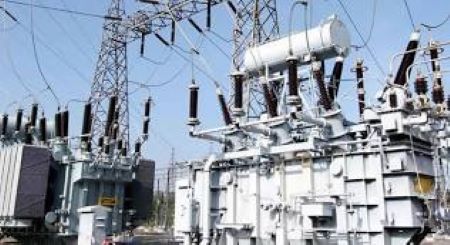The Federal Executive Council (FEC) has approved major funding to upgrade power infrastructure across Nigeria. The move is aimed at boosting electricity supply and supporting national industrial growth.
Minister of Power, Adebayo Adelabu, announced this after Wednesday’s FEC meeting, which was chaired by President Bola Tinubu at the Presidential Villa, Abuja.
According to him, four key proposals were approved, marking a new stage in the country’s power sector reform.
The first approval, he explained, is the resumption of compensation payments for communities and property owners affected by transmission projects.
Adelabu said the council approved ₦13 billion for compensation under the Lagos Industrial Transmission Project, which is being funded with a\$238 million loan from the Japan International Cooperation Agency (JICA).
He explained that once completed, the project will improve the capacity and stability of electricity supply to the industrial zones of Lagos and Ogun States.
“This project will be good news for industrial development. It will ensure that industries around Lagos and Ogun enjoy reliable electricity supply,” the minister said.
The minister added that the project supports government’s vision to power local industries, reduce reliance on imports, and create more jobs for Nigerians.
He stressed that steady electricity is vital for industrialisation, job creation, and long-term economic growth.
Adelabu further said the other three approvals relate to the purchase of new power transformers to replace weak ones in the national grid.
“These transformers will reduce the stress on overloaded equipment and help the grid cope with increasing demand,” he explained.
He noted that much of the national grid is over 50 years old, with many transformers and cables prone to frequent failure.
To fix this, the FEC approved the purchase of 14 new high-capacity transformers at a cost of \$34 million plus ₦5.2 billion.
The new transformers include: two 150MVA units, five 100MVA units, five 60MVA units, and two 30MVA units.
Adelabu said the upgrades will reduce pressure on overstretched parts of the grid and improve efficiency nationwide.
He added that stronger transformer capacity will allow the grid to handle more electricity generation and distribution.
The minister emphasised the importance of continuous maintenance and modernisation to avoid breakdowns and ensure steady supply.
He assured Nigerians that the reforms will lead to improved electricity for homes, offices, small businesses, and industries.
Describing the development as “good news for Nigerians,” Adelabu said reliable electricity is key to economic competitiveness and better living standards.
He reaffirmed that government is committed to making sure power sector reforms bring real improvements to people’s daily lives.


